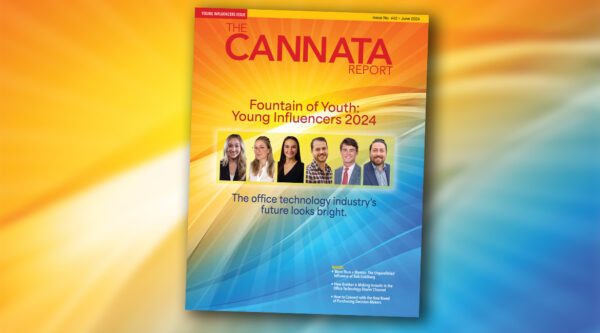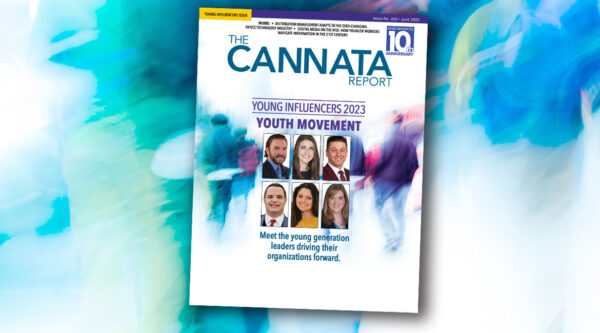The next generation makes its mark.
The Cannata Report is proud to present our 2021 Young Influencers. All six of this year’s Young Influencers hail from the millennial generation, and they continue to defy stereotypes and expectations as they carve their own paths in the industry. Embodying enthusiasm and confidence, they are not only passionate about their own work, but also the future of print and the industry as a whole.
When the pandemic locked down businesses across the globe last year, each one of our Young Influencers viewed the situation as an opportunity to uncover new ways of working and adding value to their companies, whether it was producing webinars on how to sell remotely, producing easily accessible video content, or training new employees they’d never met in-person. They doubled-down on their sales goals, used time previously spent on the road to upgrade their training, and picked up the phone again and again to stay connected to their colleagues and customers.
In the eight years of our Young Influencer franchise, we have profiled dozens of young people, and the majority are still active in the industry. (See the Virtual Panel in this issue featuring six Young Influencers from the first seven years of our franchise.) Most of our previous Young Influencers have gone on to more active and influential roles in their organizations.
Looking at our 2021 Young Influencers, we are just excited to see how they will continue to evolve and impact the future of our industry. Each is critical to their organization’s current success, and each is establishing a strong foundation to continue our industry’s legacy and evolution for many years to come.
Jason Atkinson, major account representative, Marco
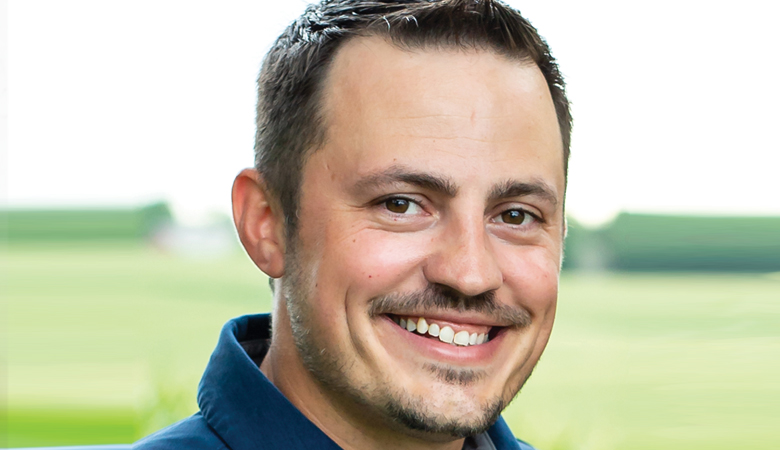
Last March, when the world locked down to contain the pandemic, Jason Atkinson (35) didn’t pick up his fishing rod and head for the lake. He picked up the phone and kept calling his customers and prospects. As a result, Atkinson posted his highest sales numbers in 2020, pulling in $2.16 million in hardware sales, and topping his $1.7 million results for 2019. Already, in the first four months of 2021, he is on track to outpace his 2020 results.
Atkinson credits his early experience at Marco as an entry-level sales rep, working under a results-driven micromanager who forced his work habits on the team. Every day, Atkinson had to knock out as many calls as possible and set up appointments. Each week, his manager required his reps to cold call and collect 50 to 100 business cards. The decision-makers’ contact info, types of products they had in-house, and other specific details had to be on each card—and if all that information wasn’t there, the card didn’t count. Atkinson describes that experience as being intense, but that committed, consistent work ethic became engrained in his approach to sales.
Atkinson joined Marco after graduating from Minnesota’s St. Cloud Technical College in 2009. On the heels of the global economic financial crisis, jobs were tough to find and he was looking for a role where he could dig his heels in and learn. He found the Marco opportunity in the newspaper, and estimates he called Marco at least 20 times before reaching Steve Gau, who is now the chief revenue officer at the company.
“I did my research on the company, and I knew Marco is involved in a lot of different areas of the market,” said Atkinson. “I asked Steve what I would be selling, and he said, copiers and printers. My first thought was, aren’t those what you bought at Best Buy?”
His first impression couldn’t have been further from his experience in the industry. Since joining Marco, he has steadily climbed the sales ladder to his current role as a major account executive. His role has evolved from making hundreds of calls per week to developing lasting, impactful relationships that drive sales in the many areas that Marco specializes in.
“There are times when I truly get to help our customers,” said Atkinson. “When you sell a solution and it does what it’s supposed to do, you solve a pain point for that customer. That’s definitely a motivator.”
During the pandemic, Atkinson settled into a consistent routine with his wife Jordan, who also works from home, and their two children, Kash and Kane, who are six and one, respectively. After he and Jordan get the kids going, they both head to their home offices and get to work, with Atkinson picking up the phone usually right away.
“It was tempting to go fishing or golfing in the mornings, but if I did that, you’re losing the morning,” he said. “It’s really a numbers game. I just continued to grind. If you weren’t working last year, it is going to show this year.”
Over the past year, Atkinson never let up on his sales goals, and chose to keep up his usual work schedule to drive net new sales and bring on new large accounts into the Marco fold. With a strong competitive spirit, cultivated in his youth on football, hockey, and baseball teams, Atkinson wants to be at the top of the sales ranks, and he knows that his sales numbers are a direct result of his constant activity.
In January 2020, Marco moved to a “one Marco” sales approach in which the company’s hardware and IT services sales reps joined forces, so every sales rep would now sell both hardware and IT services to Marco’s clients—not just one or the other. In the height of the pandemic, when no one was taking calls or in-person visits, Marco’s sales reps filled this down time with comprehensive training to bring everyone up to speed on the products and services Marco offers. Atkinson viewed this shift as an opportunity to evolve, learn, and help his customers more comprehensively—all with the opportunity to increase his sales numbers and salary.
“I like to win, and I always want to learn and do better,” said Atkinson. “We’re not just calling to talk about print. We have a better, broader story to tell our customers and prospects about IT and different renewals. It just added to the portfolio of what we could offer and kept us engaged.”
Of the many products and services Marco offers, Atkinson said he had much success with security solutions and managed IT support, as well as carrier services, connectivity solutions, and traditional voice/cloud solutions.
When it came to hardware, Atkinson estimates about 75% of his sales has been in A3 although he has seen a slight uptick in A4.
While the breadth of Marco’s products and services, as well as the potential to keep growing his salary, keep Atkinson motivated, the Marco culture is another key component of why he intends to stick with the company for the long haul. He works with a tight-knit group that has risen through the company’s ranks together professionally. These work colleagues have also evolved into friends, as they celebrate life events together, including weddings and welcoming children.
“It doesn’t feel like going to work,” said Atkinson. “I want to stay at Marco until the end and have that story of spending my career at one company. I know that I’ll have an opportunity to evolve. I’ve been at Marco for 12 years. To have the opportunity to sell everything is exciting to me. As the market changes, so does this company, and we continue to evolve to help our customers. In the next 12 years, I’m confident I’ll be at Marco and that what I’m selling will be different than what I’m selling today, but I’m also confident that Marco will be that provider for whatever that is.” SE
Kristal Cook, regional solutions manager, ACDI
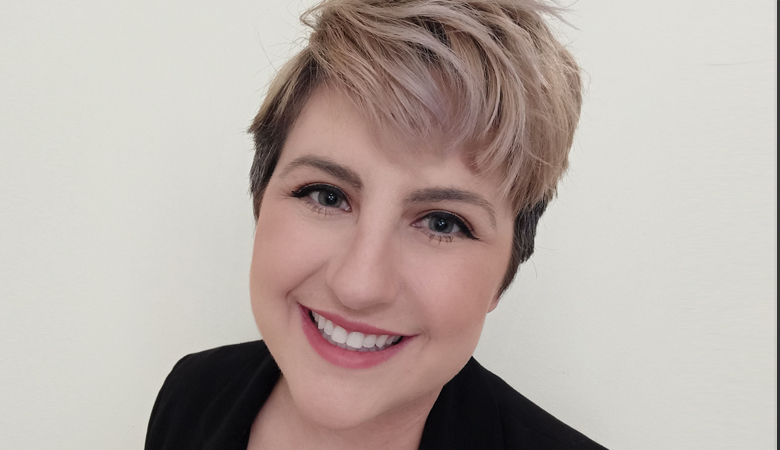
Kristal Cook (32) is no stranger to hard work. Starting at 15 years old in the restaurant industry, she already had a full, successful career before she even joined the copier and printer arena.
After finishing college at the University of Arkansas at Little Rock in 2013, Cook took on a Western Sizzlin restaurant franchise as a general manager. She had worked for the southern buffet and steakhouse chain since her teen years. Not only did Cook support herself, earning a salary for her to buy clothing and graduation robes, but she also helped support her family, including using her tips to get their electricity turned back on. By 16 years old, she established herself in a leadership role, training and managing employees.
However, after nearly three years of 80-hour work weeks at Western Sizzlin, at age 28, Cook offered her resignation so she could reset and determine a new path to support her daughter Kahlan, now seven years old, and her husband, Brent, who has multiple sclerosis and is medically retired from the military.
Almost immediately, headhunters began contacting her to persuade her back to the restaurant industry, but after a brief break, Cook kept looking for other opportunities that could offer a way to leverage her interpersonal skills developed over more than a decade and a better work-life balance.
“These headhunters were calling me and offering me double what I had been making,” said Cook. “Saying no was terrifying, but I could not keep going in the restaurant industry.”
Wanting to get into sales and marketing, she looked to start over in a new industry—even if that meant taking a drastic pay cut that was terrifying in its own way as well. She posted her information all over LinkedIn, and ACDI responded immediately, even though her résumé did not have any office experience. The company promptly recognized Cook’s potential, transferable skills, and strong work ethic. ACDI hired Cook, and she started in April 2017 as a business development manager.
Arkansas-based ACDI was also starting something new: an inside sales team to cultivate relationships and stoke opportunities for its regional sales members assigned to territories. Cook was the first new hire to ACDI’s inside sales desk.
Cook received basic training on ACDI’s premier product PaperCut, and began making at least 35 calls and sending 40 personal emails daily, along with scheduling as many appointments as possible for her sales reps.
“I wasn’t scared of picking up the phone, introducing myself, and starting conversations,” said Cook. “In this industry, I think it takes about two to three years to really know all of the available problems and the solutions because you’re covering many different types of customers in many types of verticals, and no two customers are the same in this industry.”
Cook gained traction by having detailed conversations with ACDI’s customers. She asked how they were structured, what their concentration is, what they are good at, where they can improve in their lines of business. She would then figure out how she could be more effective in training the sales team.
“The more effective I can be, the better the sales teams will be at talking about ACDI’s solutions,” said Cook. “I realized I needed to dig deeper to understand what makes them tick to help the sales teams be more effective.”
Cook established herself quickly as an asset at ACDI. Since joining the team in 2016, she has been promoted five times, culminating with her current role as a regional solutions manager, where she helps train the inside sales team, among many other members of the ACDI team, whether it is one-on-one or in a team setting, and conducts product demos for customers.
“I had the opinion that you shouldn’t ever forget where you came from,” said Cook. “You’re only valuable to your company if you are helping better the position you just had. I try to lay out the system and plan that worked for me so they can perfect and add on to it for themselves.”
She also reviews accounts with her partners daily, digging into what they need and what could be more useful to them. When the pandemic hit, she used her past experience in covering territories across the U.S. as an inside sales team member to schedule remote meetings for her partners. They were used to hitting the pavement and knocking on doors, but neither were options as the country locked down in 2020.
To help her sales partners, she produced a webinar called “How to Successfully Sell Remotely,” which has been well received. The webinar covered everything from remote call etiquette to different platforms to use.
“I try to share my knowledge with my sales partners to help them in any way I can,” said Cook.
Cook stays motivated by the challenges and opportunities to problem-solve every day. She also appreciates the ability to fully support her family, as well as maintain her mental health.
“I left one industry because my mental health was suffering, and I wasn’t loving what I was doing everyday anymore,” said Cook. “Having a new problem everyday keeps me from getting bored. I can’t be creative if I am bored. Every, single customer is different. They all have different workflows and different needs. I like having conversations about what they need and how I can help solve their problems.”
Though Cook is a leader within ACDI, she is also broadening her industry-wide reach. During the pandemic, like many, she was afraid of losing her job. She began seeking out opportunities to make herself more visible and valuable at ACDI and within the industry.
To counter the perception of the copier printer industry being predominantly comprised of middle-aged white males, she began a podcast called “Female Fridays,” where she interviews industry women and give them a broader platform. Rather than focusing on C-suite women, she looks for women who are doing jobs like her, helping to support themselves and their families in an industry with a bright future ahead. The podcast is just one of many creative outlets, including some stand-up comedy and volunteer work, where Cook uses her various skills and talents.
“I don’t really see many other women in this industry,” said Cook. “I know they’re there. Maybe we [as women] aren’t as good at sell-promoting, but we’re just not very visible. I believe everyone has a unique vision, skillset, or experience they could share. My goal with ‘Female Fridays’ isn’t for this to be just a female-based platform, it’s for everyone in our industry to see and hear from women.” SE
Brianna Makarevich, sales trainer, RISO
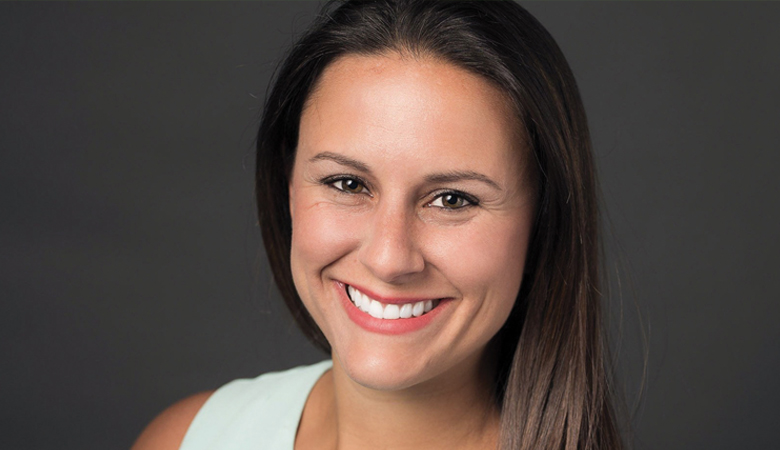
Brianna Makarevich (33) had her first experience in sales at a Verizon Wireless booth inside a Circuit City electronics store, as a store greeter right out of high school.
“I interviewed for the job about two weeks before I turned 18,” said Makarevich. “They had to wait for me to do the drug test [before I was hired].”
Makarevich worked her way up to sales and loved it, but she realized she liked talking to people about sales even more. When she ultimately left Verizon ten years later, she had already weathered the Circuit City buyout and multiple rounds of layoffs. As a senior trainer in retail sales, Makarevich knew her skills would adapt well at RISO.
“Part of what I love about sales training is, if we’re being honest, sales is sales,” she laughed. Makarevich knew that the same principles worked, no matter the product. The only issue she had to navigate was the fact that, unlike at Verizon, she didn’t actually have any experience directly in the sales trenches at RISO.
“I used to say hey, I used to do sales, I get it,” said Makarevich. “At Verizon, you could still look up my numbers and see, ‘Oh, she didn’t suck. Maybe I should listen to her.’” At RISO it wasn’t that simple. She had to tailor her approach and rely more on the experience of her colleagues, who had been with the company longer until she got her bearings.
“That really carried me for a year or two,” she said. “I was so fortunate to be able to go on ride-alongs and talk to the customers, and then, I started speaking to customers I’ve spoken with before and been a part of that process with them. I started building my own story.”
One of the biggest differences about moving from cell phones to copiers is the size of the financial commitment customers are making and the length of the service relationship.
“You’re dating to marry,” joked Makarevich. “You’ve got to have a more patient sales rep. In cell-phone sales, you find something quick to connect with. It’s New England, so the weather’s always a topic of conversation. Then, you learn what they’re looking for. The nice thing about a longer sales cycle is you can take the time to make that connection deeper.”
Makarevich trains her sales reps to find repeatable points of contact. Call a potential client when you happen to be in the area, befriend gatekeepers like the front-desk staffer, and grow relationships from there. However, she counsels her trainees not to walk in the door with an assumption already in mind about what product this client might be looking to purchase for their business.
“That can really limit what you offer a customer, because maybe there’s something you have no idea about in their business and you may miss opportunities,” she said.
To counteract this instinct, Makarevich likes to use hypothetical case studies in her workshops. She’ll present trainees with a profile of a potential client such as a school. First, the sales reps list every product they think the client could use no budget concerns factored in at all.
“Obviously, everybody comes up with, like, a $400,000 sale,” Makarevich said. “Then, we narrow it down and say okay, based on their needs, let’s put a check mark next to each of your solutions that helps a need, and at the end of the exercise, whichever products have the most checkmarks next to them, in most cases, that’s the solution.”
Makarevich draws a distinction between training and motivational speaking. She likes to remember a piece of wisdom she got early in her training career: “The best trainers are the laziest trainers, because then the participants do all the actual work.”
She aims to have a significant majority of each training session consist of participants brainstorming and collaborating together. “By the second half of the training they should be the ones talking and presenting, not me,” she said.
For the most part, this hands-on training strategy works equally well for new recruits and seasoned reps, but Makarevich does note that younger reps can sometimes need extra focus on how the newest technology, no matter how cool it is, isn’t always something every customer needs. For example, RISO’s Wrapping Envelope Finisher, which can print mailings and stuff them in envelopes, as well as address and stamp them, is always something younger reps want to offer right away.
“I don’t ever want to discourage them from going big, but at the same time you also want to temper that,” Makarevich said. “Most schools are budgeting for about $5,000.”
The way she gets her more excitable reps to rein things in is by reminding them the advantage of getting their foot in the door with a single device. “Once clients see the value of it, maybe on the next sale, they will be adding that Envelope Wrapper,” she said.
One of the eternal questions in training is what’s more valuable in hiring, experience or fresh blood? Makarevich laments seeing companies let positions go unfilled for too long because the minimum experience required is so high.
“With fresh people, what I argue is you don’t get bad habits,” said Makarevich. In her observation, even the greenest recruits can get up and running within the first ninety days. “Get a few days of training and then, go out into the world. They need to realize what they don’t know and what questions they didn’t know to ask.”
With the pandemic putting a halt on Makarevich’s normally heavy travel schedule, she looked to new ways to use her presentation skills. She wanted to put a face to the company and keep a line of contact with reps, vendors, and clients.
“People these days won’t open an email, but they will click on a video,” she said.
Building out RISO’s social presence was straightforward, but it took some experimentation to find the right format for the videos. The first attempt, a 10-minute webinar, got “maybe seven viewers,” Makarevich laughed. “It seemed so logical. Take ten minutes out of your day!”
Trial and error led her to the two-to-five-minute “Coffee Talk” series on RISO’s YouTube channel. The videos are unscripted but shaped around an outline she works out beforehand with RISO’s executive director of sales and marketing Andre D’Urbano, who also moonlights as her video producer. It’s part of Makarevich’s philosophy of always figuring out her own way to communicate an idea.
For Makarevich , “If you had to read a speech someone else wrote versus one you wrote yourself, which one are you going to be more comfortable with?” KG
Tim Osborne, senior regional sales manager, Brother
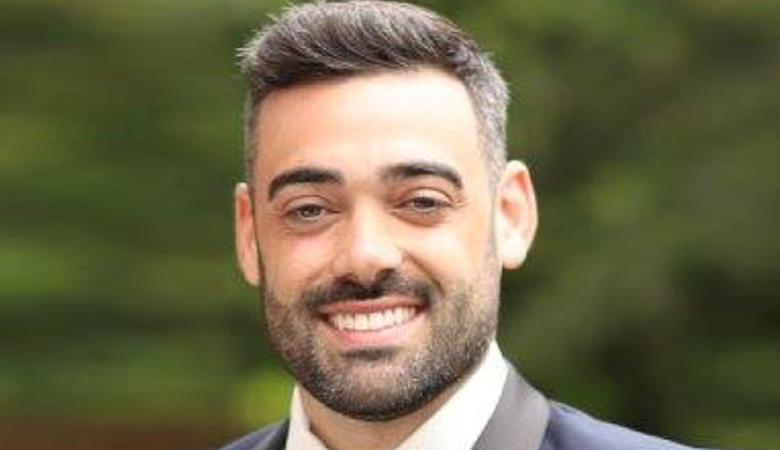
Tim Osborne (34) first thought about working for Brother when he was in his early 20s, sitting in his parent’s basement, catching his breath after coming home from another day at the direct sales job he’d been working for two years.
“I didn’t really know what I was stepping into,” said Osborne. “I’d had a rough day at work and I was like, you know what, I’m just going to apply to some companies.” Osborne had some experience with high-intensity sales, cutting his teeth at an internship with a Wall Street firm that reminded him of the movie Boiler Room, but Brother started a new chapter of his life.
One of the things that struck Osborne as unique about Brother was the longevity of people’s careers there and the close bonds that seemed possible to form with his colleagues. Twenty- or 30-year careers aren’t uncommon there, and for Osborne, that was a major advantage.
“To some people it might sound dull, but I have buddies who are professional sales guys who [are always] flipping jobs, [thinking] the grass is greener on the other side,” he said. “It wasn’t for me. A career path is the most important thing.”
One of the stereotypes of millennials is that they’re socially awkward and especially uncomfortable on the phone. This perception can make employers hesitant to consider younger hires for customer-facing roles, but Osborne believes that social skills can be taught.
“There’s people out there that just have the gift of gab, but you can also groom somebody who doesn’t have it yet, and I think I was the latter,” he laughed. He credits this education to his mentor, Laurie Sofield, who is now Brother’s director of regional sales for the East Coast.
“I was able to sit back and watch her in a business environment and see how she presented herself,” he said. “Everybody has their own way of giving a pitch, their own flair. For me to have a couple months of watching her do that while I was a junior sales rep, there’s no doubt I was not as skilled as I am at this point in the game, and that’s because I had good coaching, a good mentor in place.”
Brother has long been known for its home electronics and SMB products, but it was a relatively late comer in the enterprise space. A challenge early on was just opening minds to the idea that Brother was competitive in the office world. The company developed a new product line and a service model built for the enterprise market, including a bundled three-year warranty that offers next-day, hot-swapped replacements of any devices that need repairs.
“We’ve been very successful,” Osborne said, “The sky’s the limit. Our team has almost doubled in the last five years, and it’s going to continue to grow.”
Of course, the pressing question for anyone working in the enterprise space is, now that Covid-19 has prompted a global shift to remote work, will the office even exist in the future? Osborne has seen a lot of different answers to that question in the 16 states that make up his territory. In his mind, the way of the future is seamless connectivity between home and office, assisted by cloud services and a consistent user experience across different devices.
“I still think there’s going to be a need to scan and print documents, and Brother’s a great solution because we have a nice big touchscreen and all the popular cloud-based apps and business applications,” he said. “Put it in someone’s office at home, and it’s just two touches away.”
One of the hardest adjustments of the past year has been meeting with clients online instead of face-to-face. “I think everybody’s used the phrase ‘Zoom fatigue,’ but after a few months, people got the hang of it,” he said. “When it comes to service issues and sales, you really have to be present. The dealers want to be out, they want you to be out as the vendor partner. We’re slowly getting there.”
Even though Osborne misses the travel he used to do before the shutdown, working from home has its advantages. His daughter Isabella is just shy of two years old, and he’s now able to keep an eye on her while taking meetings on Zoom, although that’s more challenging than it was when she was younger. “It used to be I could put her in a corner, give her a little snack, put on Blue’s Clues, and she’d be good to go,” he said, “but now she’s opening doors and ripping my computer down. It’s amazing how much things have changed in six months.”
The pandemic has kept people apart from each other so much that Osborne only recently met in person with the rep he hired to take over his old territory after he got promoted over a year ago.
“My new rep has done an excellent job of managing the relationships and he’s running with everything at this point in the game, but it’s been hard for me,” he said. “What I call myself is an overachieving sales rep. I love being in the trenches and working a deal. But you have to step back and put some trust out there that you set the stage and they can do the job. I don’t always have to be the first person to respond.”
Now that the tide of the pandemic seems to have turned for the better, managing territories takes more of a varied strategy than it used to. “My Midwest folks, they’ve been out and about and running a bit differently than the Tri-State area, which has been more on lockdown. Then, down in Texas and the Southeast, it’s almost like there was no pandemic.”
Osborne advises his reps to use their judgment, taking meetings face-to-face when it makes sense to do so and sticking to video conferencing when it doesn’t, which he expects will be the case for a long time to come. “Zoom is a great tool,” he said. “It doesn’t necessarily make sense to spend the company money. Do I need to necessarily fly to every meeting? Maybe if there’s an event around it, or it’s a big end-user meeting and they want my help. A lot of what we get done can be done via Zoom, but nothing beats in-person interaction, especially when you’re trying to build genuine business relationships.” KG
Blake Renegar, director of managed networked services, Kelly Office Solutions
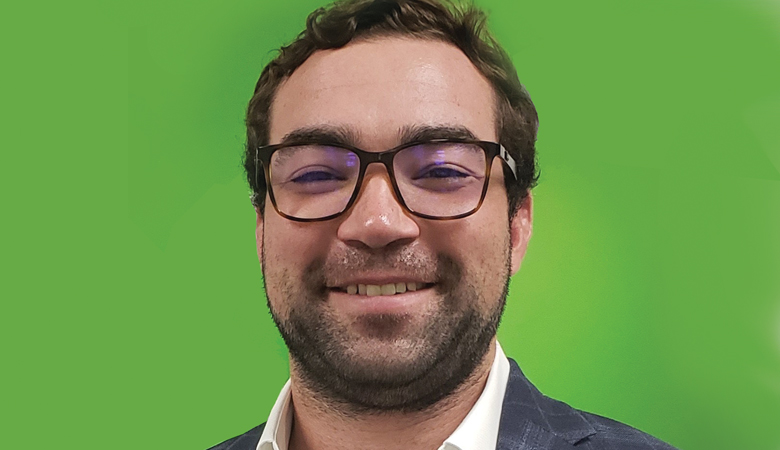
Back in 2013, Blake Renegar (30) was still a college student when he and his father, Tim Renegar, went to a trade show in Las Vegas and came back with the conviction that managed IT was the future of the industry. The younger Renegar graduated, joined the family business, and spent the first year planning how this new line of services would work. Key to this early strategy was a partnership with a managed-services provider, GreatAmerica Financial Services’ Collabrance.
“It helped us scale without having to make huge upfront investments,” said Renegar. “We treat our partners just like they’re a part of our organization. To the eyes of the client, it’s all one entity.”
This new way of doing things took clients some getting used to. The managed-services model was very different from what they had been doing before, what Renegar characterizes as a “reactive approach,” as in something breaks, and a service rep shows up on site and bills by the hour.
“There was a learning curve for customers, and there was a learning curve for us,” said Renegar. “It fits in naturally with what we do with copiers, but it’s a totally different business as far as selling. You take on so many things. It’s not just one machine you’re supporting, it’s the entire network. But it adds huge value to your clients if you can pull it off.”
The value-add proved to be irresistible. Now, managed IT services are one of the fastest-growing facets of the industry. Renegar credits success in the growing field to two things: investing in great engineers and cultivating a depth of knowledge about client businesses.
“We try to get in there at least once a quarter with our clients and talk about what’s going right, what’s going wrong, trends in their business, what their plans are from a business side,” he said.
Many businesses experienced instability and slowdowns during the pandemic, but for Kelly Office Solutions, business was better than ever. “We had a lot of project work come about because of the pandemic,” said Renegar. “A lot of workforces that were all in-office switched to 100% remote pretty much overnight, so we sold a lot of laptops, we set up a lot of VPNs, and we had to enhance a lot of folks’ security policies and procedures to accommodate a remote workforce.”
The big rush to upgrade to remote-work capabilities, especially the fact that everyone was doing it at the same time, meant busy days for Renegar’s team, but the long-term payoff was worth it. Not only did many clients modernize their systems, but the experience has also shifted clients’ priorities for what they’d like to do next.
“It’s caused a lot of people to think more about the cloud, and more about the ability to be flexible as far as where they are and how they operate,” he said. “It was already moving in that direction, but COVID accelerated it.”
Renegar doesn’t think we’ll ever see a world where offices are completely cloud-based. As adaptable as offerings like cloud services are, on-premise servers have the advantage of remaining accessible even in the case of an internet outage. “I think we’ll see a lot more hybridization. Things will definitely start leaning more and more cloud, but I don’t think you’ll ever see the elimination of on-prem,” he said.
An advantage of offering managed IT is how easy it becomes to take the temperature of the industry and see how clients are feeling about their futures, especially after a big shakeup like the pandemic.
“I get the sense that our folks, everybody’s ready to rock and roll,” he said. “I think everybody felt, I wouldn’t say scared, but a little bit held back by the pandemic. Now that things are lifting and getting back to normal, people are ready to go.”
The key to making use of this new wave of energy in the business world is to hire enthusiastic, adaptable reps who are eager to learn and happy to benefit from the expertise of the engineers on their team. “When we’re making a sophisticated proposal with a sophisticated solution, I make sure to involve the engineers within the proposal process,” said Renegar. “If it got technical, if we were having a conversation with another IT department about how some aspects of our proposal work, I had those guys there to address that. You approach it as a team.”
The need for expertise will only increase as technology in the office becomes ever more important. Renegar sees a lot of opportunities coming. “AWS [Amazon Web Services], Azure as a service, and cloud-based storage as a service—on-prem is never going to leave entirely, but there’s a lot of money to be made in the cloud,” Renegar said. “Going beyond that, artificial intelligence is going to be even bigger. Having someone who understands that and knows how to implement those types of services, there’s a lot of opportunities there.”
To stay informed on the latest news, Renegar looks to his manufacturers and service partners, but he also gets support from T.A.G., or the Technology Advisory Group. As an organization of MSPs, its members consult and advise Renegar on new developments in the industry.
“They’ve done a great job keeping us on top of trends, making sure we’re doing the right thing,” he said. “They help us analyze our financials and get other MSPs together to talk about best practices. It’s really just been a great group to make sure that we’re headed in the right direction.”
It’s a demanding field, but Renegar thinks that anyone with an enthusiasm for technology who’s willing to work hard can succeed in it.
“You’re going to get a lot of turndowns, and it’s just about being able to keep grinding, keep going,” Renegar said. “You’ve got to be willing to always learn, always evolve. Technology always changes, so you’ve got to be willing to adapt and move forward.” KG
Karlee Ricks, chief marketing officer, Impact Networking
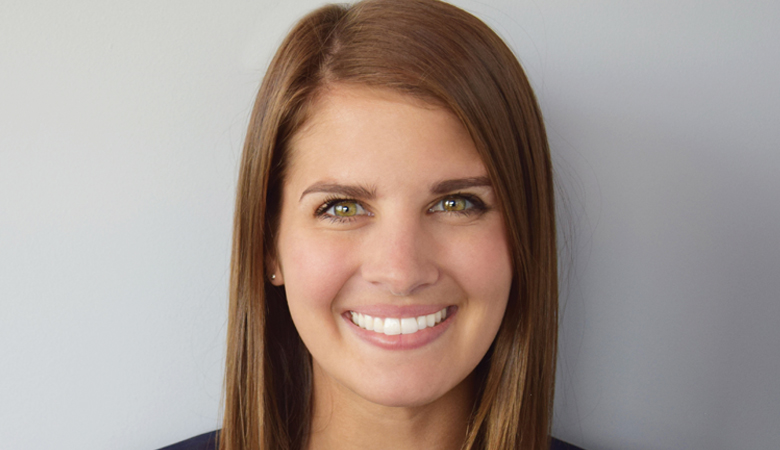
When Karlee Ricks (29) joined Impact Networking as a marketing manager in 2017, the company was looking to step up its digital marketing efforts. Ready for a new challenge back in her home state of California, Ricks left New York City, where she had been working in public relations for the hospitality industry. She had gone to college with CEO Frank Cucco’s daughter Carly Cucco at San Diego State University, and had always been inspired by Cucco’s vision not only for Impact Networking, but also the industry.
Ricks didn’t know much about the copier and printer industry, but like many, it appeared a little boring from the outside and she did initially have some concerns about marketing office-related products that didn’t seem that exciting, especially coming out from the hospitality world. However, once she joined Impact Networking, she realized this perception couldn’t be further from the truth.
“It’s so fast-moving and there is so much happening in the MFP industry,” said Ricks. “One thing I love about the industry is that you’re really helping businesses. Businesses don’t want to focus on things like managed print, managed IT, or cybersecurity; they want to focus on what their mission and vision is. For us, at Impact, it’s all about coming in and taking those things off their plates to really help these businesses grow and succeed.”
Ricks joined the Los Angeles-based team, which was a new location for Impact Networking. Even though the company has been in business since 1999, Ricks said the L.A. office had a start-up feel to it, and she quickly learned the intricacies of the industry through her colleagues.
“There were only a few employees in the office,” said Ricks. “I was working right next to all the sales reps, and really learning how they were selling the services.”
This experience has proven to be invaluable for Ricks, who was initially charged with growing Impact Networking’s reach on social media and making its digital footprint more impactful for its current and prospective customers.
“Marketing and sales have to be aligned; you can’t have a disconnect,” said Ricks. “Marketing should be a revenue-generator for the company, and you have to understand what the sales reps are selling and how they’re selling. It was a blessing to be sitting right next to the sales reps, hearing everything they were learning and sitting in on all of their trainings.”
By understanding the sales process and listening to the pain points the sales reps were uncovering in their conversations with customers, Ricks was able to better develop a marketing blueprint for Impact Networking so she could help the company truly showcase the company’s capabilities and value to the customer.
Out of the gate, Ricks looked to capitalize on the reach of social media, develop more educational content for the company’s customers, and update the firm’s website, which had been a little more static than Ricks would have liked.
To drive more traffic to Impact Networking’s website, Ricks pitched the idea of a blog. At the time, the idea seemed a little out there for her mid-western colleagues in Illinois, but it worked.
“The blog started to drag traffic to the website, and it really started to generate that organic traffic we were looking for,” said Ricks. “Our general managers who lead our different sales teams started to take notice and show their sales reps, saying, this content is incredibly valuable.”
The educational content that Ricks and her team publish through this blog have been pivotal in many instances to attract prospects, add value for current customers, and more importantly, close deals.
It’s this willingness to try new things that continues to keep Ricks at Impact Networking, and that culture of being open to new strategies and ideas comes from the top.
“That’s the great thing about Frank Cucco and Impact Networking,” said Ricks. “Frank Cucco is so willing to try things. I always say that Impact Networking has an entrepreneurial feel for its employees. You’re able to pitch something and run with it. Maybe it works, maybe it doesn’t, but it’s all about trying those new ideas. I always had Frank’s support, 100%.”
In January 2020, Impact Networking elevated Ricks to chief marketing officer. Her main focus is on expanding the company’s digital marketing reach and demand generation, a targeted marketing approach to drive interest in Impact Networking’s services, have become more data-driven. She now oversees teams in Lake Forests, Illinois, and in LA., the latter of which she built out herself. To drive organic digital traffic growth and engagement, she brought in a content writer dedicated to Impact’s resource center and the blog, a demand generation manager, and a social media coordinator, all of whom Ricks says have been instrumental in the marketing team’s success.
“There’s nothing anyone can ever do on their own,” said Ricks. “It’s important to have a diverse team – diverse backgrounds, diverse experiences – and to build a team you can trust. It’s also just as important to trust your team, letting people taking ownership of projects and making sure they’re not afraid to fail.”
An average day for Ricks revolves around constant communication with teams across the organization. Impact Networking has numerous services it offers, so she is connecting with the department heads of those services team, as well as the training department, including the Impact Leadership Institute, and recruitment team, to determine how her marketing team can better support them. She is circling in with Impact’s content, design, video, demand generation, and digital marketing teams to make sure they are all moving forward in sync.
She approaches each meeting with a strategic viewpoint and looks to be hitting her key performance indictors (KPI), ensuring that each marketing campaign makes sense for the company, is worth its investment, and is generating revenue.
“My main role in these meetings is really to take it all in, and not necessarily jump right in at the beginning,” said Ricks. “I look to empower employees to give their feedback, to talk through any problems and have the opportunity to problem-solve, and to jump in when needed and make sure we do have the strategy, the call to action, and really make sure we’re thinking everything through.”
Marketing’s fast pace continues to excite and motivate Ricks. As technology evolves, so does marketing, and every year brings new levers for her to pull to retain and draw in more customers for Impact Networking.
“Young people should be attracted to the industry because it’s incredibly fast moving and growing, and technology in every sense is the future,” said Ricks. “It’s a great industry for young professionals to understand technology and how it effects businesses, how it makes a difference in businesses. This industry is never going away, it’s a need for businesses. Where the world is going with digital transformation and automation, all of those things are included in this industry.” SE


